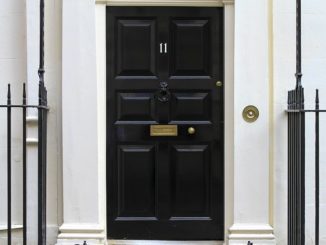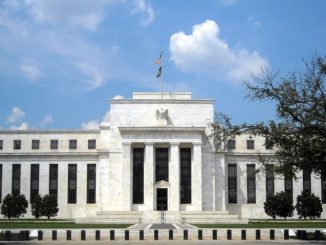
Blenheim_Palace,_south,_2013.jpg: mediaoverflowderivative work: Nev1, CC BY-SA 2.0, via Wikimedia Commons
Two hundred years ago Lord Macauley wrote “the measure of a man’s real character is what he would do if he knew he would never be found out”. This intriguing insight is as true of politicians and the governing classes as it is of the ordinary citizen.
As a general rule, governments should stay well away from economics – a science whose operation is too subtle for politicians with performative ideologies designed to further their electoral ambitions rather than the national interest – or, putting it plainly, anything that’s actually useful.
Take, for instance, the experience of markets. When politicians are told that a sector or industry is struggling and needs support, they lobby the Treasury to subsidise it, or protect it from foreign competition with a battery of tariffs – all of which costs the real economy billions and flies in the face of principles of competition and regulatory freedom.
Chips with everything
But what if all that government support actually helps, and production soars? Don’t be deceived by appearances – all state interventions are blind and unnecessary, and their impact is always counterproductive. Take those tiny transistors on silicon chips that power modern technology from phones and batteries to weapons and satellites. Despite being an indispensable component in all electronic hardware, the demand for chips is in decline. Samsung’s profits are falling due to a weak chip demand; same with Taiwan’s giant semiconductor manufacturer, TSMC, whose order-book is shrinking.
The reason? Markets are always ahead of the game, as their rapid response-times show. Perceptive investors know that global demand for electric cars is slowing while long-suppressed interest rates are normalising. Governments, by contrast, are sluggishly behind the curve: Jo Biden, to boost production of micro-processors, has signed into law a Chips and Science Act with around $50 billion committed to production of micro-processors.
The folly of Government-sponsored overproduction has resulted in massive spare industrial capacity and tens of billions of taxpayer money has yet again been fruitlessly squandered. When the heavily subsidised micro-processor plants in France, US and Germany come on stream they will struggle to flog their output into an already over-supplied global chips market in which prices are now tumbling. Great for consumers; woe for producers! And the UK? Our government is so bogged down in “consultation studies” that, by luck rather than judgement, it has been spared the wasteful glut. Yet, being blind to real-world events, it remains committed to the creation of a state-subsidised microchip industry in order to “free the UK from dependence on foreign supplies”. Such is the depth of ignorance that always manifests in idiotic and pointless aims and objectives whenever the state strays beyond its legitimate brief.
In a closely connected world a component or product whose availability is crucial to this country is likely to be crucial elsewhere too; and hence no particular country needs to hold exclusive production rights. Such questions are best resolved by allowing markets to apply objective economic principles governing competition; comparative advantage; regulatory freedom; tariff-free trade; and the rule of civil law enshrining private property rights. As long as the government resists its habitual urge to “improve outcomes”, these principles will determine where production takes place, and at what price. While demand for that product remains, private capital will assemble the necessities for satisfying it – without any need for recourse to agencies of state.
Never underestimate the ineptitude of officialdom – everywhere
It’s happening again. The dominance of economics over politics is once more being asserted. A dozen years ago, US regulators, notably the Federal Reserve, Treasury, rating agencies, the SEC, stock exchange, the entire auditing profession – all illustrious institutions with responsibility for guarding the health of the economy – were soundly asleep at the wheel while the banking industry’s criminally insane sub-prime lending practices flourished.
When, inevitably, the balloon went up they by-passed the preferred option of firing the entire useless bunch, and instead contrived a “solution” – except it wasn’t a solution. It was labelled a “temporary” measure designed to shore up a collapsing banking system. However, what they dreamed up, designed of course to protect the moneymen of Wall Street, official fumblers at the Fed and the wider fraternity of financial institutions, was the expedient of flooding the markets with shed-loads of government bonds and, courtesy of the Fed’s computer, buying them back with make-believe money, while drastically suppressing interest rates – a process given a pseudo-scientifically-named theory to sanitise the entire farrago: “quantitative easing”.
Infallibly, retribution follows ill-conceived expediency – though it sometimes takes time. The destructive policy of interest-rate suppression, the effects of which I set out in my last essay, has finally met its nemesis. The 12-year money-printing frenzy forced up asset prices, not just of property and luxury baubles, but prices throughout the supply chain from industrial commodities to rudimentary consumables, energy, foodstuffs and clothing – in other words, a consequence that our economically illiterate elite refer to as “inflation”.
The knee-jerk reaction to this repeating phenomenon is to try to halt the rise in prices by suppressing demand – deploying the only remaining weapon in their depleted armoury: raising interest rates. But – and here’s the retributive sting – their QE contrivance has left the Bank of England saddled with a stockpile of £800 billion in government bonds – debt-tokens that, when redeemed at higher rates of interest, will cost taxpayers £30 billion annually over the next three years alone, and up to £300 billion over the next decade if interest rates continue to rise.
In an exchange of letters between Chancellor Jeremy Hunt and Andrew Bailey, Governor of the Bank of England, Hunt pleads with Bailey “to minimise the cost and risk to taxpayers” when he unwinds the horrendous debt-pile by selling the wretched bonds. Chancellor Hunt says it is important that the bond sales “support value for money” for taxpayers in the unwinding process. Now there’s a novel thought! This foreseeable predicament arises from a deal struck at the outset of QE, when the Government agreed to cover the Bank’s losses when it is eventually compelled to sell the bonds it purchased with fake money to prop up the economy. Strange, isn’t it, that utterly predictable outcomes can be erased from the consciousness of officialdom when conveniently classified as “tomorrow’s problem” or, more likely, “when I’m no longer in the hot seat”!
Plus ça change, plus c’est la même chose
Last week we enjoyed a three-day break near Oxford and walked from our hotel to magnificent Blenheim Palace, the home of the Marlborough dynasty. Its construction was commenced in 1705 with financial assistance from Queen Anne, since when the Dukes of Marlborough have enjoyed a close connection with the monarchy. Winston Churchill was the grandson of the 7th Duke of Marlborough and we were shown the bedroom in which Winston was born.
Although personages have altered, the mechanisms of state governance that applied in the 18th century and earlier still resonate, as my friend Patrick Barron has pointed out. In feudal times the monarch granted lands, taxing-rights and elevated titles to the priestly class. The latter reciprocated by affirming the monarch’s right to rule as having been divinely anointed; while law-and-order, in this corruption-prone arrangement, was secured by the sheriffs (shire-reeve, official law-enforcer of the shire). That’s how hierarchical power-sharing was brokered in ages past when there were no elections.
Has it, in essence, changed? Don’t be fooled by our democratic trappings. As the American essayist H.L. Mencken put it, democracy is “a pathetic belief in the collective wisdom of individual ignorance”. No intelligent observer imagines that our civil servants and political classes are even remotely accountable for the consequences of their actions. The state bestows patronage, and grants handsome sinecures to Keynesian clones in the central bank, its dependent subset of bureaucratic institutions, civil servants, lame-duck mayors and state universities. All in return for their support of the state’s right – no, duty, to pursue its relentless spending programmes, and to print however much money this mad process requires. Thinking is surplus to requirements.
There’s much more that could be written, of course: the relentless contagion of bank insolvencies and bailouts that defy the assurance of “no-more-bailouts”; deposit insurance funds that are themselves insolvent; interest rates, the true economic pulse; the imminent demise of fiat dollars; working-from-home and the empty shell of commercial property; the mindless pomposity of central banking; the persistent myth about wealth taxes; authoritarianism of “stop-oil” protests; the virtuous ”feel-good” factor in universal impoverishment; being governed by a caste of unelected bureaucrats……..
………….maybe next time!
© Emile Woolf May 2023 (website)



